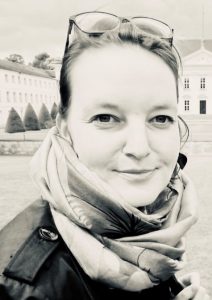Making the impossible possible? A brief look at one busy bee full-time professional trying to prove everyone wrong
This blog has been written by Jessica Holterhof, a HCRI Global Health Bursary winner studying online Global Health programme.
I started my professional career focusing on ecosystem conservation and disaster risk reduction, a field that barely interacts with the health sector. However, I formed a new passion for disaster preparedness and humanitarian assistance in protracted conflict contexts, as I delved more into disaster risk management. Soon enough, cross-sectional discussions on health-related aspects started to play a big part in my daily work. Looking back, I realise my interest in the health sector started long before I first put it into words. I had completed online classes in epidemiology and first aid training in my free time, and started reading more and more books on health-related responses and lessons learned around the globe. I wanted to better understand the different dynamics in global health and see how an increased understanding would benefit my job.
Reflecting on my work experience, I came to realise that while monitoring and evaluating outcomes and coordinating with various humanitarian stakeholders has given me valuable exposure to a thematic area I am passionate about, I would need to gain additional skills and training to make substantive technical contributions in the field of global health, both through humanitarian and development lenses. The Global Health programme at HCRI seemed like a perfect fit that would provide me with access to new conceptual frameworks, research tools and methodologies to examine elements in global health, and across different countries and regional settings in greater depth, and give me the opportunity to discuss with like-minded people from all over the world.
 I do have a full-time job that, like for so many others in the humanitarian sector, tends to become an all-consuming 24-hours a day/7-days a week obsession. I additionally supervise a team of ten project assistants that count on my leadership and decision-making, so taking time out to focus on additional studies is not really an option. Therefore, when I told my colleagues about my plan to start studying again well into my 30s whilst maintaining my heavy daily work load – everyone thought I was crazy. Talk about motivational support!
I do have a full-time job that, like for so many others in the humanitarian sector, tends to become an all-consuming 24-hours a day/7-days a week obsession. I additionally supervise a team of ten project assistants that count on my leadership and decision-making, so taking time out to focus on additional studies is not really an option. Therefore, when I told my colleagues about my plan to start studying again well into my 30s whilst maintaining my heavy daily work load – everyone thought I was crazy. Talk about motivational support!
So here we are, well into Module 2 of the course. We delved head-first into an interesting, challenging and active discussion on not only health-related topics, but on so many other cross-cutting issues that often do not meet the eye on first glance. I learned to challenge viewpoints that I have had for years due to the fact that I could share and discuss them with professionals working in all corners of the world and in all stages of the health cycle as practitioners, academics, evaluators or donors.
While it is all fun and games for a while – it also starts draining your energy. Both you and your loved ones start to feel the long nights and the shortened free time on the weekends to recover from a busy week. One thing I have always struggled with is achieving the right balance between career duties and my private lifestyle. Thankfully, the studies at HCRI and my work are closely linked, and I saw the direct benefits of bringing my academic knowledge into my professional work almost immediately, which is a huge motivating factor for me. Hence, it was never supposed to be about the potential career benefits or proving someone wrong, it was about me having some fun, trying to challenge myself and opening myself up to new ways of thinking.
Yet studying is a big commitment. To be able to juggle the tasks of studying and working at the same time, you need to realistically assess your current situation and figure out if you really have the time and capacity to do it. For me, it is a work in progress. Until then, I am taking it session by session and am keeping the faith that trying to do my best is enough. Fingers crossed!


0 Comments